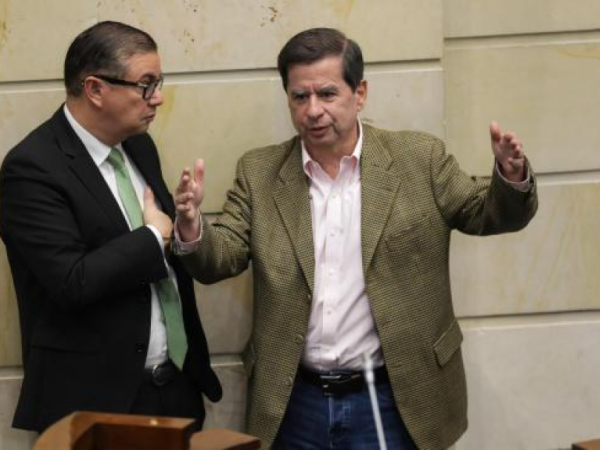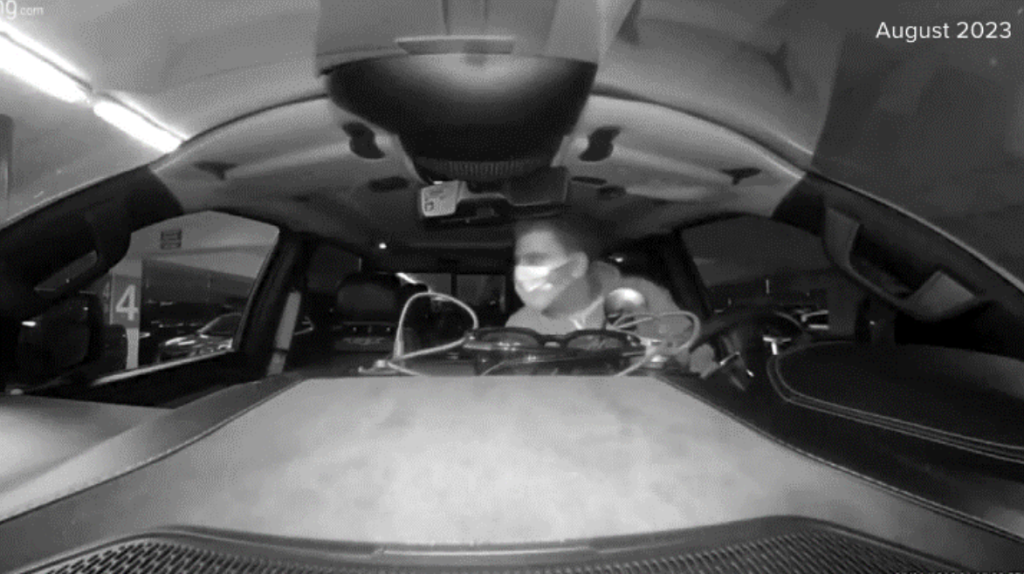While different economic experts classify the reform project to the General Participation System (SGC)in politics there are still closed lines around this initiative.
So much so, that everything indicates that what could be one of the constitutional reforms with the greatest impact in recent decades can be approved in just under two weeks.
(You can read: Lafaurie receives support from Fedegán to continue participating in dialogues with the ELN).
As defenders of the project, they emerge from the very President Gustavo Petroeven games like Democratic Center either senior officials such as the president of the Senate, Efraín Cepedaand members of the different groups that are part of the current Congress. Even the Minister of the Interior, Juan Fernando Cristowent so far as to say in dialogue with EL TIEMPO that the country is facing the expression of “true national agreement”.
In its seven debates (of which at least four went under the radar of public opinion) it has barely received five negative votes and for its final debate there is no sign of a change in the receptive environment.
Reform to the General Participation System.
The project, per se, It includes a demand from the regions that has lasted for decades to have access to greater resources without having to depend on the approval of national and even second-level officials, from Bogotá.. However, in white avocado it also means that billions of dollars will be spent, if not handled, at least, in an area of greater influence for local and regional political powers and their partners in the legislative body.
For this reason, this reform project has not encountered any major obstacles during its journey through Congress; nevertheless, alarms still persist about the controls that will be necessary to prevent corrupt officials from finding a billionaire watering hole.
(You may be interested in: Minvivienda will be ad hoc Minister of Finance and Agriculture due to the UNGRD case).
The majority of speakers and experts on the initiative point out that the apparent success it is having in Congress is due to the fact that the conditions were favorable for the process and the interests of at least three very different sectors converged.
Just look at how support was gradually added. On the one hand, there are the initial authors, the now Minister of the Interior, Juan Fernando Cristo, and the senators from his former party, En Marcha, who had been working on the initiative since 2022. They presented it in the second half of that year and it collapsed due to lack of processing within the scheduled times..

Reform to the General Participation System.
The project was presented again in March of this year. One of the first great supports he received came with the Cepeda’s predecessor as president of the Senate, Iván Namewho had been promoting his thesis of federalism and autonomous provinces and even managed to have an article related to this topic included in the National Development Plan.
As part of the dissemination of his thesis he held several forums. In one of them the now Minister of the Interior was present exposing the scope of the initiative that is now just one discussion away from reforming the Constitution. As president of the Senate, Name’s support was important at first. Some even came to identify the project with this one, but it really came from En Marcha.
(You may be interested in: National Government has only bought 802 hectares from ranchers).
The second significant impulse was that of the National Federation of Departments (FND). The incoming governors arrived with an emphasis on greater autonomy and the project coincided with that line. Although initially they were going to present their own project, they saw that this initiative had the main objectives that were set out from the first governors’ summit, held in Cartagena.
“The majority of Congress agrees and we governors have promoted it because we have the historic struggle for decentralization. That is, the SGP is the materialization of how the National Government’s resources and powers are decentralized and we give more to our territories to be able to operate.“, he said in dialogue with EL TIEMPO. governor of Boyacá and president of the FND, Carlos Amaya.

Ivan Name
The last support that arrived was from the government of President Gustavo Petro and was provided at three different times. On the one hand, the Ministry of Education I was working with Fecode in a proposal to decentralize greater resources for education at the regional level. As the reform of the General Participation System was already circulating in Congress and accommodated a good part of what they were asking for, they joined it. Likewise, the Ministry of Health He welcomed the fact that there were more resources for the regions and that they take on many health issues that are currently a national matter.
The second round of support can be framed in the arrival of Juan Fernando Cristo to the Government. This was one of the authors of the initiative and his possession in the Ministry of the Interior ended up paving the way for the proposal. The minister himself gave signs of the management he would do in his favor in the first speech he gave as an officialwhen he spoke that one of his objectives was “to advance in the deepening of territorial autonomy and strengthening the fiscal capacities of the departments.” Even those close to the minister told this newspaper that he had taken advantage of those first meetings with the president to present the project to him.
(Further: Governors ask Congress for support to approve the SGP reform).
The final support arrived a little over a month ago. He Minister of Finance, Ricardo Bonillaand the director of the National Planning Department, Alexander López Mayavehemently opposed the proposal and sent two concepts against it to Congress. The controversy reached one of the highest levels of the Executive, the council of ministers. There, President Petro ended up opting in favor of the reform, although he asked to make some changes, among them lowering the amount that would be given to the departments and municipalities from the current income of the Nation, going from 46.6 to 39. .5 percent, and the transition period, which was increased from 10 to 12 years.
The presidential approval only confirmed the absence of opposition in Congress. In its first round, the SGP reform only had three negative votes, two in the Senate and one in the First Chamber Commission. Although those of the Historical Pact were aware of the objections presented by the Treasury, they supported the project. Then, with Gustavo Petro’s yes, the road was paved. Only two negative votes have been presented: that of Paloma Valencia and that of Humberto de la Callewho clarified that he voted negatively in the sixth debate because the articles were voted on en bloc.

Efrain Cepeda
While the Senator Angélica Lozanowho had proposed transferring 36 percent and not 39, has several reservations. Among them, that in the text it is not a requirement that the powers law that will be made later must have fiscal endorsement: “It is dangerous and ends up excluding a bill in the Constitution from the obligation that all projects with fiscal impact and appropriations have.”.
Experts explain the great reception in the following way: “There is a fundamental reason, the congressmen in their territories do not measure them and do not win votes for their speeches of political control in Congress or the laws. There is a determining point and that is to bring resources and create works. The rod is the influence in the management of resources for social demands”said the teacher Jairo Libreros, from the Externado University. Along these lines, he concluded: “With this reform project, all congressmen can say that they are able to bring these resources”.
PORTFOLIO
*With information from EL TIEMPO – POLITICS
















